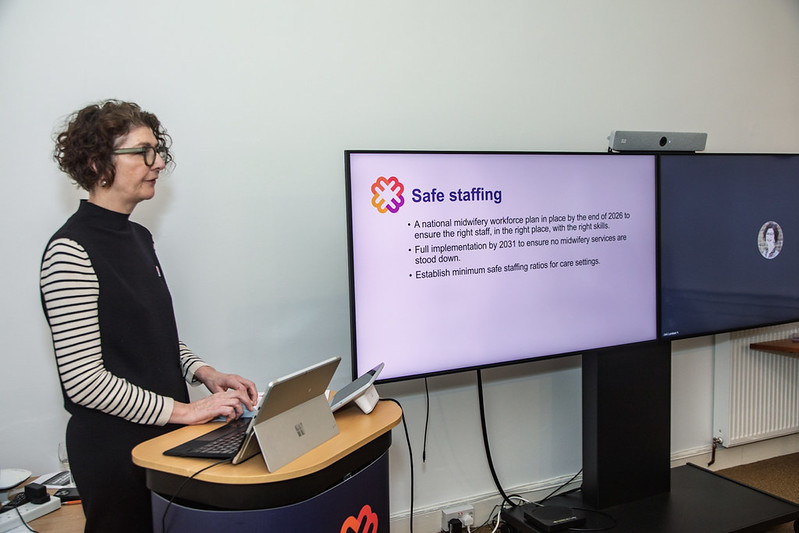Last week, the RCM professional team attended the biennial European Congress on Intrapartum Care (ECIC) in Madrid. The event kicked off with a bold and urgent call to action from the Congress President and obstetrician Gerard Visser challenging delegates to address the rapidly rising rates of caesarean births. He warned that privatised care and defensive practice has fuelled this, and when not clinically indicated caesareans have a deleterious impact on women’s experiences and the long-term health of them and their babies. It was a sobering presentation given that in some European countries the rate has reached 70%. Complimenting this were some engaging presentations about supporting women who birth outside the system, including Dr Anna Madeley’s fantastic research looking at UK women’s birth choices decision making which we highly recommend reading.
The congress was a brilliant opportunity to promote RCM work and how we connect with our members through collaborative projects and continual professional development. We presented posters on the RCM’s maternity disadvantage assessment tool (MatDAT), the ongoing research prioritisation project and the hugely popular Syndeo Band 7 leadership programme. RCM professional policy advisor and congress President Mervi Jokinen also gave a powerful keynote on the vital role of professional bodies such as the RCM in addressing workforce challenges through influencing national strategic priorities and action plans. Her speech highlighted the positive impact of RCM campaigns such as Caring for You and the One Voice collaboration, and reinforced that the midwife voice must be included to drive improvements in care and workplace experiences.
We got hands on with the OdonAssist™, a novel instrumental birth device which may offer a safer alternative to traditional operative births. It has been trialled by the obstetric team in Bristol and EU regulatory approval seems imminent. Further hot topics included the use of AI to advance maternity safety; initiatives to address rising postpartum haemorrhage rates; the value of personalised care; and the importance of trusting physiological onset of spontaneous labour.
It was invaluable to connect with RCM members and organisations such as the International Confederation of Midwives (ICM) and the World Health Organisation (WHO), and to learn about our European colleagues’ challenges and research. There was much to reflect on regarding the positive aspects of UK maternity care, particularly the support of birth choices clinics and that midwifery care is recognised as key to high quality, safe care. These are sadly almost abstract concepts in some European settings. The congress was a call to action to jointly seek collaborative, woman-centred solutions to address rising intervention rates and disrespectful care. We extend this call to you and urge you to consider sharing your own work on this topic and to attend ECIC 2027.
Attending a conference is a fun and inspiring way to network and enhance your evidence-based knowledge. You come away feeling reinvigorated and more connected to your professional community and identity, plus the hours and reflection can be used for NMC revalidation. So why not book your place at this month’s RCM Conference today!

